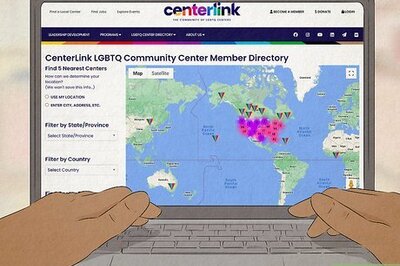
views
Last year the Reserve Bank of India issued guidelines on digital lending to protect customers from a range of issues including exorbitant interest rates by certain entities, data protection and grievance redressal. It also aimed to check unethical loan recovery practices.
Under the new norms, all loan disbursals and repayments are required to be executed only between the bank accounts of the borrower and the regulated entities (RE) without any pass-through/ pool account of the Lending Service Providers (LSPs).
REs included all commercial banks, along with cooperative banks at state or district levels. It also includes Non-Banking Financial Companies, including Housing Finance Companies.
LSPs are the Fintech players operating in the market through their app-based platforms.
RBI had mentioned the concerns related to unbridled engagement of third parties, mis-selling, breach of data privacy, unfair business conduct, charging of exorbitant interest rates, and unethical recovery practices.
RBI defines digital lending as a remote and automated lending process, largely by use of seamless digital technologies for customer acquisition, credit assessment, loan approval, disbursement, recovery, and associated customer service.
Also Read: How To Save Your Hard-earned Money From Online Frauds?
RBI has stated that the regulatory framework is based on the principle that lending business can be carried out only by entities that are either regulated by the RBI or entities permitted to do so under any other law.
While framing the guidelines, the digital lenders were classified into three groups.
1. Entities regulated by the RBI and permitted to carry out lending business;
2. Entities authorised to carry out lending as per other statutory/regulatory provisions but not regulated by RBI;
3. Entities lending outside the purview of any statutory/ regulatory provisions.
There are several measures announced by the RBI which are crucial for the customers to know before they opt for any digital loans or if they face an issue post availing the facility.
– The guidelines says any fees, charges, etc., payable to LSPs in the credit intermediation process shall be paid directly by RE and not by the borrower.
– Customers must note that the RBI guidelines mandate a standardised Key Fact Statement (KFS), to be provided to the borrower by the LSPs before executing the loan contract.
– All-inclusive cost of digital loans in the form of Annual Percentage Rate (APR) is required to be disclosed to the borrowers. APR shall also form part of KFS.
– Automatic increase in credit limit without explicit consent of the borrower is prohibited by RBI.
– A cooling-off/ look-up period during which the borrowers can exit digital loans by paying the principal and the proportionate APR without any penalty shall be provided as part of the loan contract.
– REs shall ensure that they and the LSPs engaged by them shall have a suitable nodal grievance redressal officer to deal with Fintech/digital lending related complaints.
– Such grievance redressal officers shall also deal with complaints against their respective digital lending apps.
– The details of the grievance redressal officer shall be prominently indicated on the website of the RE, its LSPs and on digital lending apps.
– If any complaint lodged by the borrower is not resolved by the RE within the stipulated period (currently 30 days), he/she can lodge a complaint on the Complaint Management System under the Reserve Bank – Integrated Ombudsman Scheme (RB-IOS).
The facility of lodging complaints has to be made available on the app and the website of the service provider. The responsibility of grievance redressal remains with the respective RE.
The guidelines mandates the stakeholders, including banks, NBFCs and LSPs, to address the customer complaints and if they fail, a borrower has the freedom to register its grievance with RBI. For entities currently not covered under RB-IOS, complaints can be lodged as per the grievance redressal mechanism prescribed by the Reserve Bank (https://rbi[dot]org[dot]in/Scripts/Complaints[dot]aspx).
Read all the Latest Business News here




















Comments
0 comment